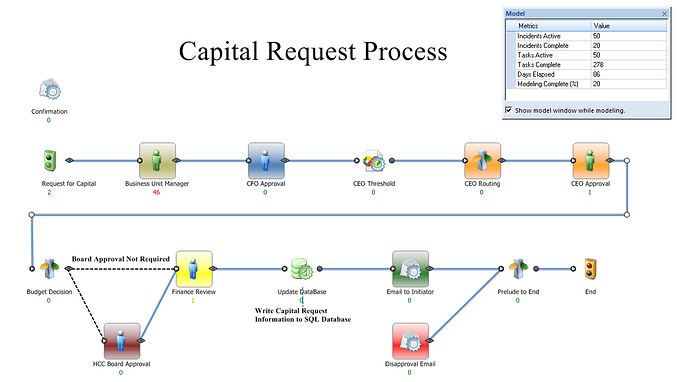While signs of recovery are drawing closer, many companies are still struggling to make ends meet and survive the recession. Looking back at the winners and the losers I'm reminded of a previous blog I wrote around the ability of BPM to help build a sustainable platform for your company's operations. Adding to this idea of having greater visibility into your business process, more accurate forecasting, and greater control of your resources, I want to highlight the importance of efficiency as it relates to surviving a recession and flourishing during economic growth.
I believe there is a sweet spot that companies need to meet and maintain an operational balance on. During a recession cutting costs too quickly and too deeply can hinder the ability of a business to sustain and grow, as can investing too heavily. So what is the right strategy? Lean Operations. By assessing your company's needs, goals, and resources you can selectively highlight sectors of the company where costs can be reduced. Likewise you can also identify and relocate resources to smooth out bottlenecks and inefficiencies. Surviving a recession (and the sometimes too aggressive recovery) means working smarter.
As I was sitting in on a product demo today of the Ultimus Adaptive BPM Suite, this rang true more than ever. The demo focused on process modeling and achieving efficiency. Using a virtual environment, Company X's process (at its current state), was evaluated over a period of time to view the process' efficiency from a high level.

Company X was shocked to learn the source of the concern and the amount of money it is costing the company to continue running such a process. After identifying and reassigning tasks to additional internal resources the simulation was run again, this time proving results of a significant decrease in operational costs and time of completion for N number of incidents.
There is a great deal to be said for working smarter and more efficiently. In using a BPM Suite to identify process bottlenecks and inefficiencies, it is a best practice to follow the 80/20 Rule- Focus your automation and lean operation efforts on the 20% of your company's processes that generate 80% of your revenue. It is these high valued processes where we have seen many customers cut costs and improve their operational efficiency significantly.
Is your company struggling in the current state of the economy? Is your company operating as efficiently as possible? Have you considered implementing a BPM Suite?
Relevant Links:
BPM- A Sustainable Strategy for Your Company
Using Adaptive Discovery- A BPM Best Practice
Lean vs Six Sigma: What's the Difference?
Controlling Process "Rework" with Lean Six Sigma Practices
Mary Katherine Strupe
Marketing Coordinator
Ultimus


